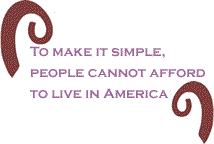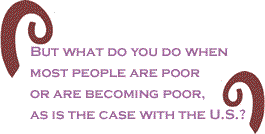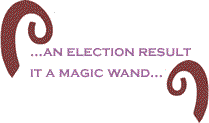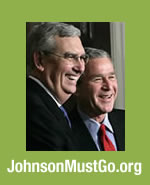
|
||||||||||||||||||||||
 |
||||||||||||||||||||||
 |
||||||||||||||||||||||
 |
||||||||||||||||||||||
 |
||||||||||||||||||||||
 |
||||||||||||||||||||||
 |
| The current issue is always free to everyone |
|
|
 |
Recently, in Philadelphia I heard the most insulting radio commercial of all time. It was an ad for Philadelphia Gas Works, or PGW, a local city-owned utility. The narrator, a woman, lectures to the audience that if they do not pay their gas bill, PGW will cut off their service. In the background, throughout the commercial, is the sound of a man singing in the shower. Suddenly, towards the end of the commercial, he starts screaming in agony, presumably because PGW shut off his hot water. Now, PGW tried to make light of a matter which is anything but amusing. It would seem to represent the worst, most inappropriate and most poorly timed public relations strategy in recent memory, but no one seems to talk about it. The PGW people are inferring that people are trying to beat the system, to have gas heat without paying for it. Here’s a novel idea: perhaps poor and working people cannot afford fuel costs. Philadelphia, like other cities, is hurting from the recession, but for many people, every day is a recession. One-third of the city is mired in poverty, and the city has the highest per capita incarcerated population in the nation. There are no summer jobs for the kids, and for many of them there may not be any free bus passes when they return to school. But the problem is bigger than Philly. The city’s current administration is as able as any, and seemingly abler than those who preceded it, but they inherited problems that are shouldered by states and localities throughout this nation. It will take a national strategy to solve them. To make it simple, people cannot afford to live in America. There is the energy crisis, where profiteers and speculators are making out like bandits from the high price of oil, and companies such as Exxon Mobil are posting record profits, while common people cannot afford their energy needs. Alternative fuels will save the environment and unleash new industries and spur job creation, but the corporate giants that killed the street cars throughout the nation, and the electric cars in California, stand in our way. The energy crisis relates to the food crisis, because the high cost of energy increases the cost of food. Then, of course, there is the subprime mortgage crisis, where the financial giants and Wall Street banks defrauded millions of people with home loans with unconscionable terms they could not possibly afford. These people are continuing to lose their homes in cities throughout the country, in what has become a loss of wealth of historic proportions.
Finally,
there is the crumbling infrastructure crisis.
The
PGW commercial represents the common Dickensian strategy, American-style,
of callously blaming the poor for their own problems, calling
for personal responsibility, and criminalizing them as a means
of shutting them up, shutting them down and keeping them in
line. But there is a better way. In this election season, as we are about to witness a potentially dramatic pendulum shift in the United States, there are clear choices as to what direction Americans want for the country. Whatever happens, people of good will must be part of a movement that brings sustained economic and social equity and justice, seeks quality jobs, healthcare and education as a human right, and ensures that government serves the people and is no longer used as a casino for multinational conglomerates. Although the next occupant of the White House can go a long way in setting the tone, an election result is not a magic wand, and there are no shortcuts for the hard work which must be done on the ground. BlackCommentator.com Editorial Board member, David A. Love, JD, is a lawyer and journalist based in Philadelphia, and a contributor to the Progressive Media Project, McClatchy-Tribune News Service, In These Times and Philadelphia Independent Media Center. He contributed to the book, States of Confinement: Policing, Detention, and Prisons (St. Martin's Press, 2000). Love is a former Amnesty International UK spokesperson, organized the first national police brutality conference as a staff member with the Center for Constitutional Rights, and served as a law clerk to two Black federal judges. His blog is davidalove.com. Click here to contact Mr. Love. |
Any BlackCommentator.com article may be re-printed so long as it is re-printed in its entirety and full credit given to the author and www.BlackCommentator.com. If the re-print is on the Internet we additionally request a link back to the original piece on our Website. Your comments are always welcome. eMail
re-print notice
If you send us an eMail message we may publish all or part of it, unless you tell us it is not for publication. You may also request that we withhold your name. Thank you very much for your readership. |
|
| June
26, 2008 Issue 283 |
|
| Executive Editor: Bill Fletcher, Jr. |
| Managing
Editor: |
| Publisher: Peter Gamble |
| Est. April 5, 2002 |
| Printer Friendly Version in resizeable plain text format or pdf format. |
 |
 |
 |
| |
| |























 Related
to the mortgage crisis is the emerging school loan crisis, where
colleges and universities make unholy alliances with lenders.
The result is tuition that rises well in excess of the rate
of inflation, and students that graduate with a mortgage-sized,
high-interest loan. The massive amounts of debt with which these
young people are saddled - before they even start their career
in a job market of fewer opportunities and outsourcing abroad
- will gravely affect their life choices and career choices.
Related
to the mortgage crisis is the emerging school loan crisis, where
colleges and universities make unholy alliances with lenders.
The result is tuition that rises well in excess of the rate
of inflation, and students that graduate with a mortgage-sized,
high-interest loan. The massive amounts of debt with which these
young people are saddled - before they even start their career
in a job market of fewer opportunities and outsourcing abroad
- will gravely affect their life choices and career choices. What
caused this problem? To make a long story short, much of it
has to do with the conservative revolution, perverse public
policy choices that shift wealth upward, deregulation, hatred
of government as a force for social change, and unscrupulous
politicians who run the track each and every day to make that
money for their corporate pimps.
What
caused this problem? To make a long story short, much of it
has to do with the conservative revolution, perverse public
policy choices that shift wealth upward, deregulation, hatred
of government as a force for social change, and unscrupulous
politicians who run the track each and every day to make that
money for their corporate pimps.








